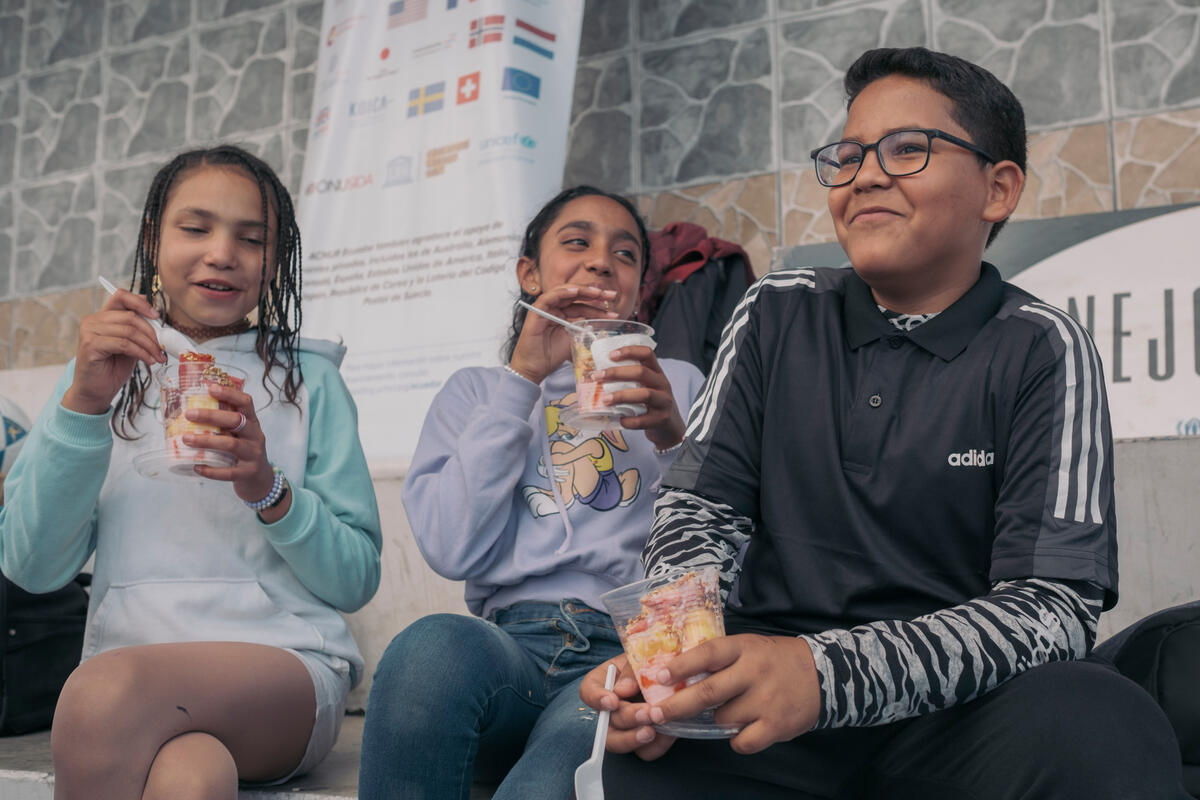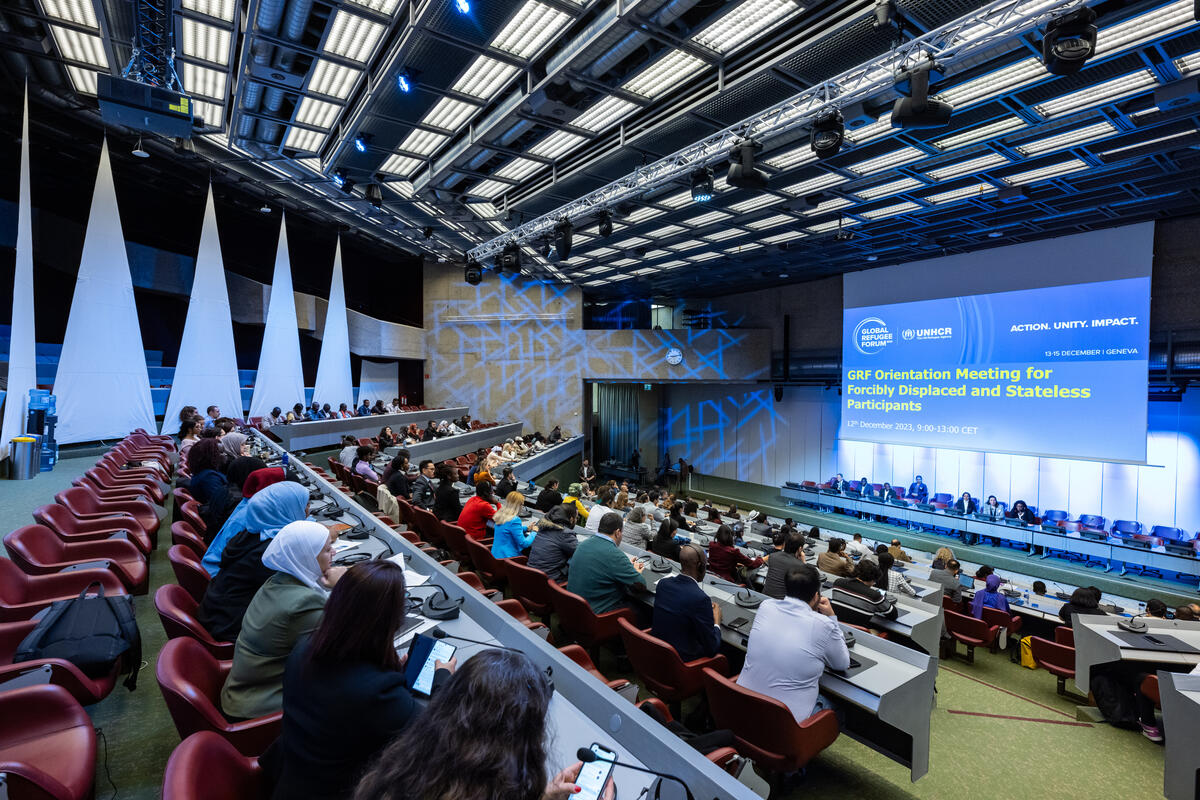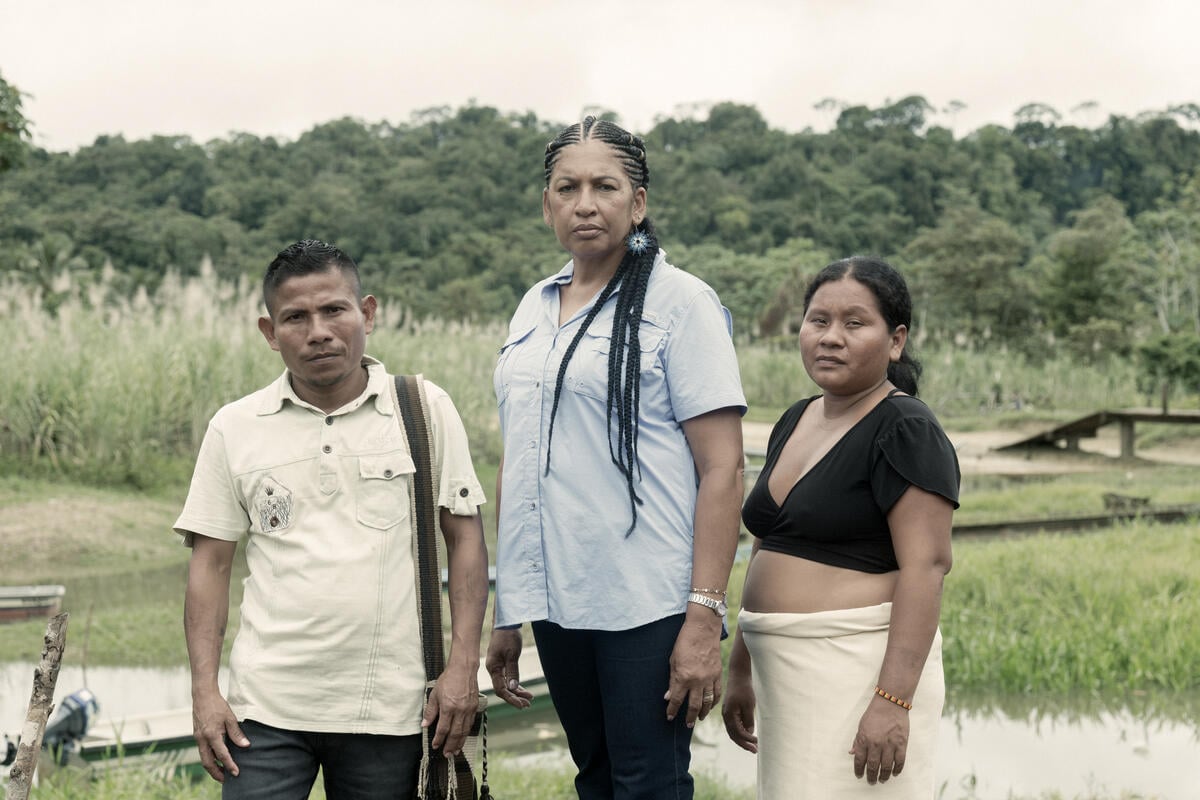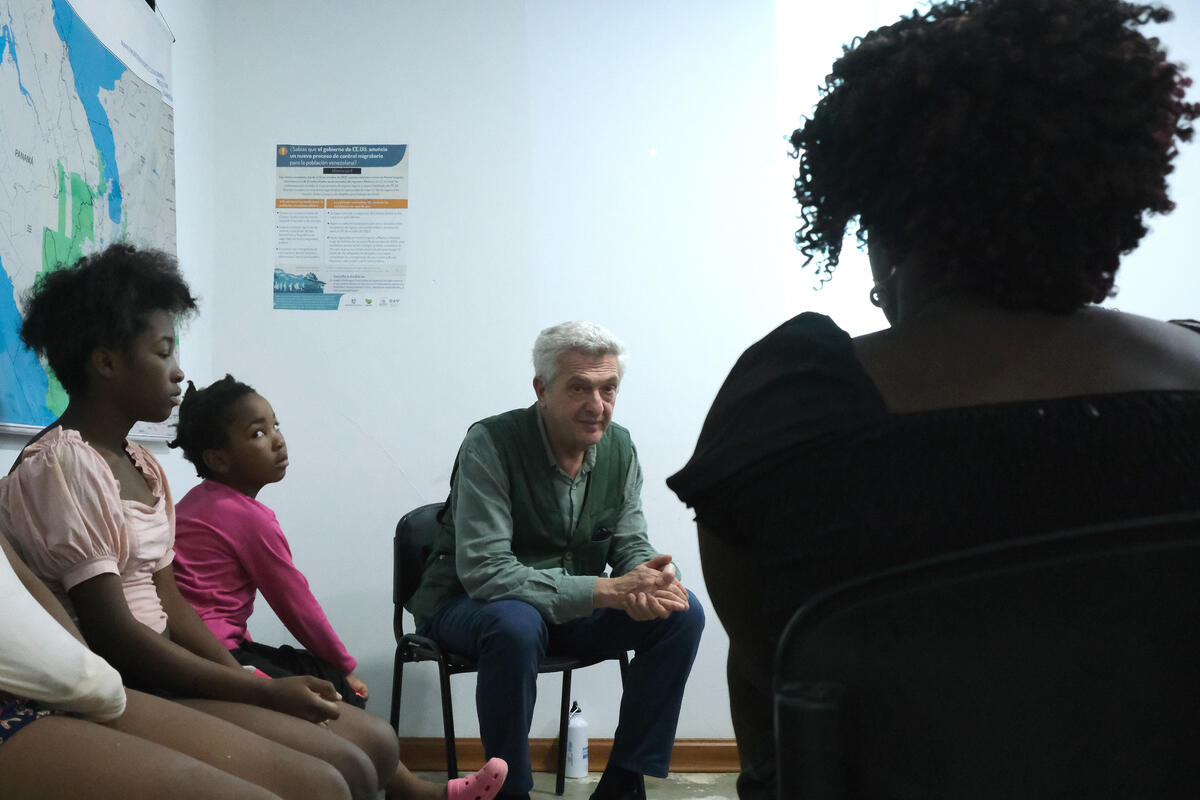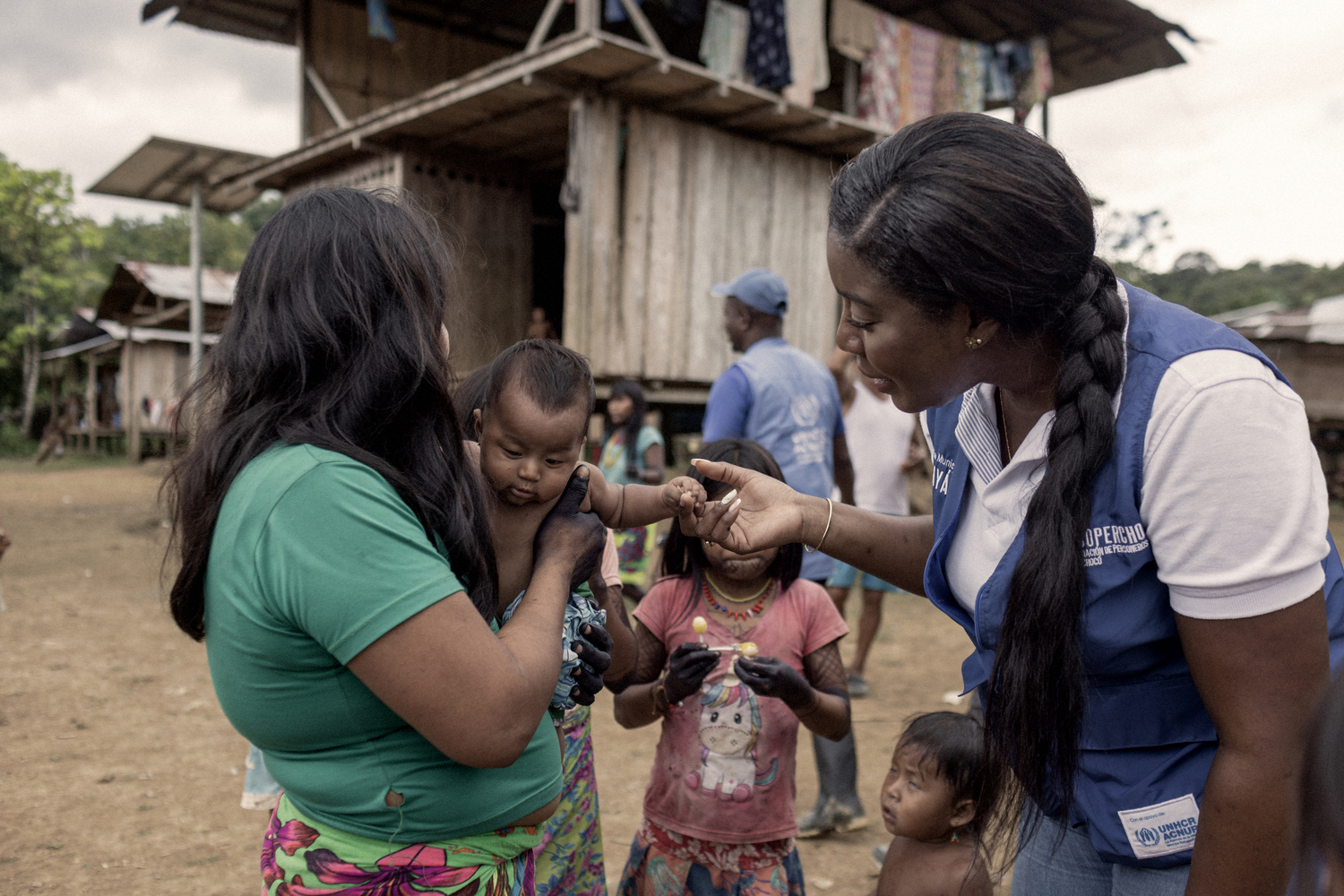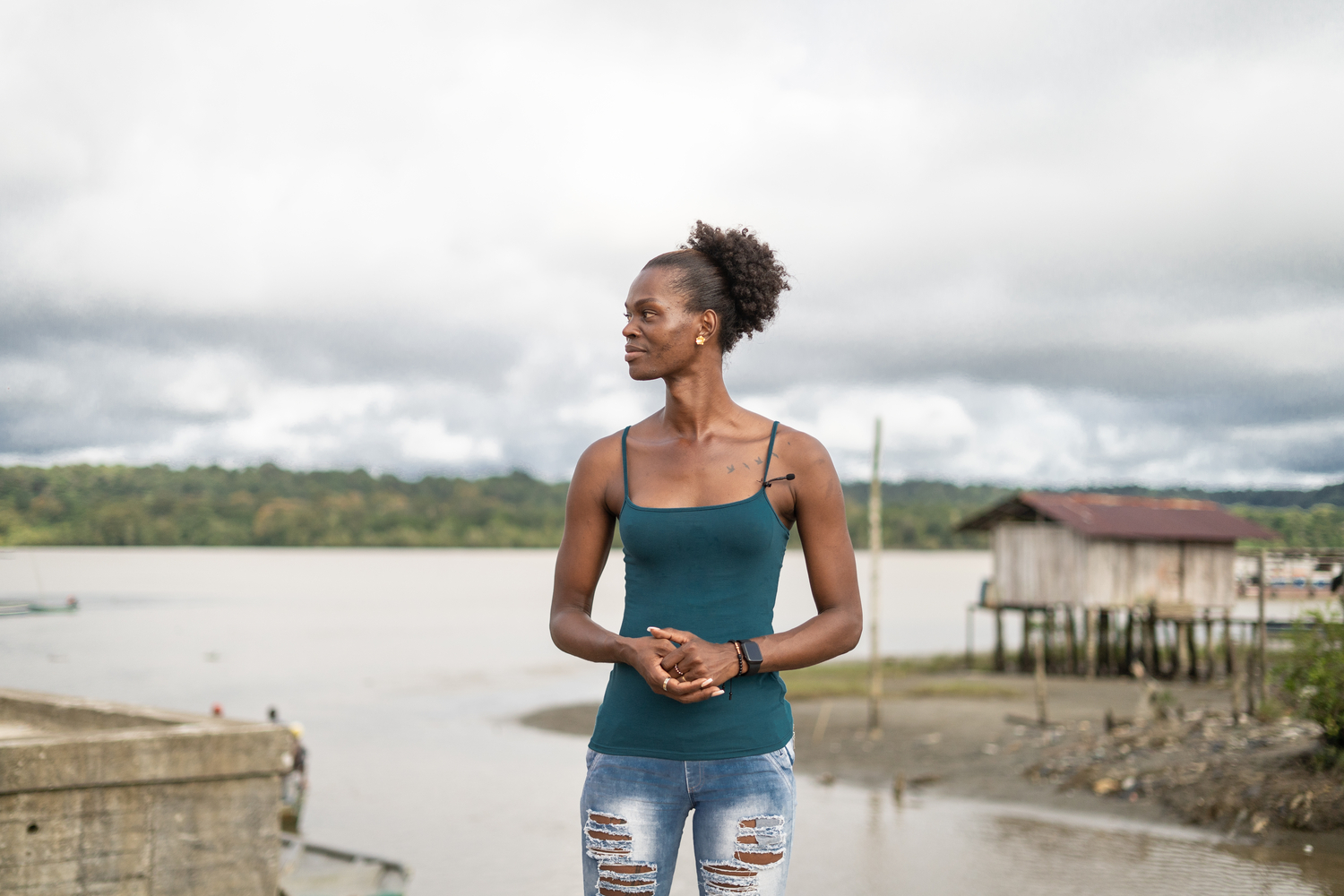Fear prevents paperless Colombians in Ecuador from seeking help
Fear prevents paperless Colombians in Ecuador from seeking help
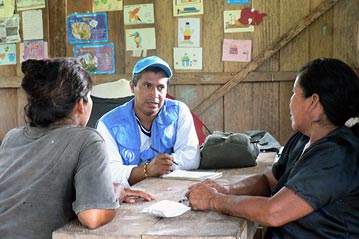
LURIMAGUA, Ecuador, September 29 (UNHCR) - Fear has been Jané's constant companion over the past year. In her native Colombia, she witnessed the murder of her father and husband by an irregular armed group. The terrified woman fled to neighbouring Ecuador with her four children.
But since she arrived in the small village of Lurimagua, some 40 kilometres south of the border, she has lived in dread of being detained for lack of documentation.
"The furthest I have gone is 10 minutes away from here," Jané said, while sheltering from a tropical storm with other Colombian women.
"I'm afraid the police will stop me. They have stopped other people I know just because they didn't have papers. It is not even safe for me to buy food from the next villages. I have never felt so trapped," the 30-year-old added.
Jané is not alone in her predicament. There are some 14,000 registered refugees and asylum seekers in Ecuador, but UNHCR estimates that up to 250,000 Colombians in the country may need its help. Many of those who flee violence in Colombia and cross the porous border do not apply for proper documentation - either because they are afraid to do so or do not know how to.
Without legal documentation, these Colombians cannot exercise many of their rights, including the right to employment and social services such as health care. For Jané's mother, this has been a serious problem.
"I can't go to see the doctor because I don't have identification papers with me. Were it not for the nun who gives me medicine every day I would have died," said the 75-year-old, who suffers from acute bronchitis.
But things are beginning to look up for the family. Jané did not know when she got to Ecuador that she was entitled to international protection, but she recently found out from an Ecuadorian non-governmental organisation - ESQUEL - that she can ask for asylum.
Since May, UNHCR and ESQUEL have been visiting remote communities like Lurimagua to identify potential asylum seekers and inform them of their right to make an asylum claim. As soon as a claim has been registered by the UN refugee agency, asylum seekers are eligible for provisional documentation that allows them to stay in the country and use public services.
"As the closest government authorities are many miles away, UNHCR goes out to remote communities to register asylum seekers, although the government is expected to take on this activity in the near future," explained John Contento, UNHCR field assistant in the town of Lago Agrio.
Local communities along Ecuador's northern border are showing great generosity towards Colombians in need of help. Lack of documentation does not prevent Jané's children from going to a nearby school with other Colombian and Ecuadorian kids. And it was an Ecuadorian neighbour who lent her the small wooden house in which the family now lives.
But lack of documentation has severely hindered Jané's chances of getting a job - a problem shared by many unregistered Colombians in the region. Jané has survived by raising poultry, washing clothes for neighbours and working on a cocoa plantation.
"I get four dollars a day on the plantation," she said. "It's hardly enough for me, my mother and my four children. I am sure that if I could go out and look for a job the whole family would be much better off."
She might soon be able to do so. Now she has heard of UNHCR, Jané plans to register as an asylum seeker and looks forward to a life in which she no longer needs to spend her days in fear.
By Francesca Fontanini, Giovanni Monge and Nazli Zaki in Lurimagua, Ecuador

